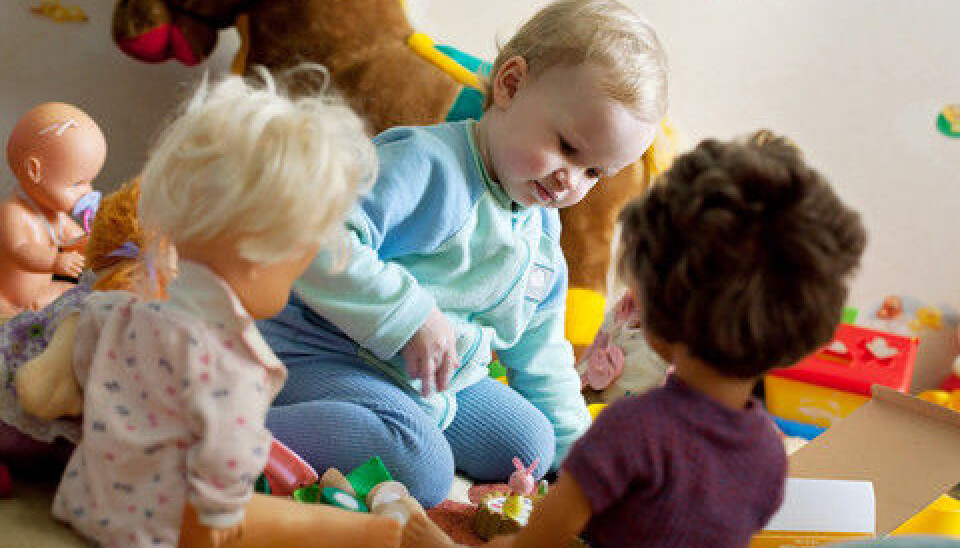This article was produced and financed by University of Stavanger

Poor verbal skills hamper play
Children with language difficulties often end up excluded from games and social interaction. This can harm their development.
Denne artikkelen er over ti år gammel og kan inneholde utdatert informasjon.
Earlier research have shown that such youngsters often find it harder to learn to read and write.
A recent study shows that they also run the risk of social and emotional problems.
These findings have been presented by Kristine Løge, associate professor at Centre for behavioural research at University of Stavanger.
Show more rage
Many children with language difficulties are just as good at thinking as others, but are unable to express what they are thinking or want.
That in turn makes it hard for them to ask to join in games, initiate play or take part on an equal footing with other children.
“Instead, they pull other kids’ hair, destroy what they’ve built or scream in rage,” says Løge. “That’s why it’s so important to work with language and identify such problems early.”
No game
Her research and other studies show that children with poor verbal skills, who say things out of context or who answer too late may find it hard to join in games.
That tendency can be seen from a very young age.
“Children choose playmates who’re similar to them, who respond as and when they expect, and who’ve learnt the codes for getting involved in the game,” Løge explains.
Feel isolated
Play and social interaction have a big impact on child development, helping to develop their verbal and social skills and teaching them to cooperate and fit into different contexts.
Youngsters who become excluded lose that experience. They become isolated and unhappy, and often play alone or with younger children. That affects their learning, development and social relations.
“Many of them end up with internalised difficulties,” observes Løge. “They become silent and hide away. Others develop great behavioural problems, becoming violent and aggressive.”
Systematic approach
She has herself worked with children who have language difficulties, and knows that a systematic approach can yield big progress.
“Working actively with language, repeating what things are called, teaching words the child needs in various contexts, and putting a name to everything will expand vocabulary,” she says.
In addition Løge advice adults to help the child to become involved in games by showing them how other children do it, and teaching them words which can help them to establish contact with others.
“That also applies to very able children, who can also have problems finding somebody to play with. Their language may be so advanced that others of the same age find it hard to understand what they’re saying.”


































